Making space for everyone
MacEwan University’s Mitchell Art Gallery explores adult/child relationships and challenges itself – and others – to set new standards for accessibility.
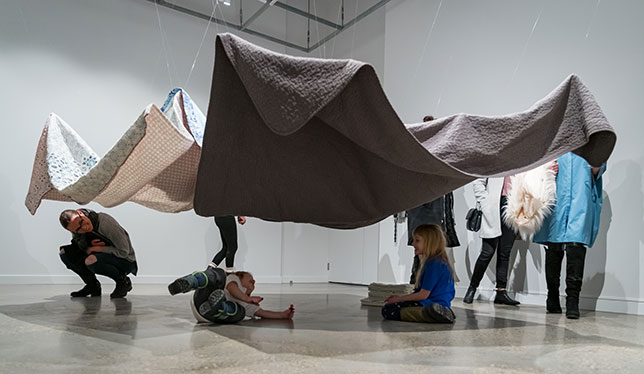
Three mothers and their four young children carefully place one foot in front of the other, as they walk along the bronze inlay that maps out Brenda Draney’s Trapline art installation in MacEwan University’s Allard Hall. When they reach a bright red blanket, they stop and kneel alongside an apple box. The mothers unpack the corn, wild rice, squash, bottled water, cooking pots and dishes inside, prepare the food for their children and they eat together. Then, the children offer food to the audience.
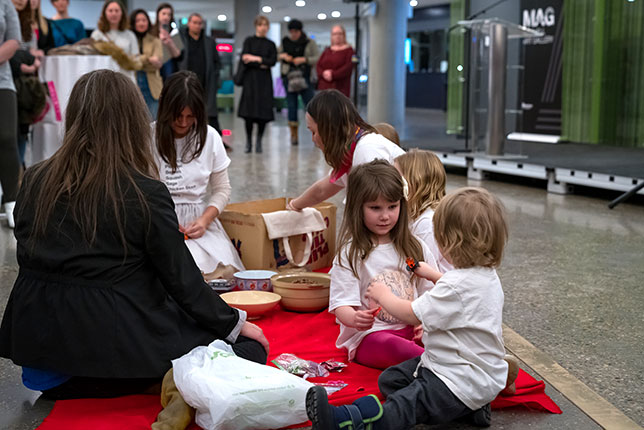
“For 15 minutes, we observed Indigenous women caring for their children,” says Carolyn Jervis, director of the Edmonton university’s John and Maggie Mitchell Art Gallery (MAG). “There were references to food security, industrial production, water security and water protection – big political issues that affect Indigenous women’s abilities to mother and care for their children.”
The performance by all-female arts collective, The Ephemerals (Jaimie Isaac, Niki Little and Jenny Western), opened Mothering Spaces, guest curated by Becca Taylor. The second exhibition in the Edmonton university’s 2018/19 academic year (the first was Childish), explored the experiences of Indigenous women who are artists and mothers, and followed an arc of programming that challenged the public gallery’s visitors to explore adult/child relationships.
“The Mitchell Art Gallery is a place for active learning – it’s about helping the university community think beyond our limits,” says Jervis. “It was incredible to hear the different disciplinary perspectives on how we can make galleries safe and welcoming places for parents and children, and to reach out to the broader community and have parents, caregivers and children come and engage in the exhibitions, panel discussions, workshops and interactive artwork in the gallery.”
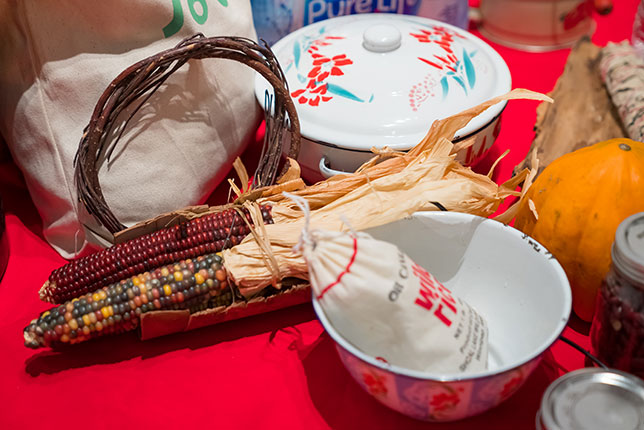
For Childish and Mothering Spaces, that active learning involved the gallery, the community and students in the university’s fine art, nursing, design, early learning, nursing, child and youth care, and arts and cultural management programs. Sometimes the learning was political – challenging the perception that once a woman has a child, her career in the arts is over. Other times it was practical – providing artists with hotel rooms that had two beds instead of one or inviting parents and children to actively participate in the exhibitions (visual artist Kasie Campbell and her eight-year-old daughter Mavi hosted twice-weekly crochet circles, creating a collaborative work over the course of the fall semester).
The gallery aims for its programming not only to explore and connect people and ideas through contemporary art, says Jervis, but also to encourage students, the greater university community – and the gallery itself – to think critically about their role in the arts, their place as a downtown university, and how galleries function.
“It wasn’t a problem to accommodate the things our artists and their children needed to participate, but they’re not things that are always considered or welcome. In these exhibitions, mothering wasn’t hidden away. It was visible.”
And even as the gallery changes its focus next year to issues of sustainability, waste and consumption, the learning about equity and inclusion that happened at MAG this year won’t be forgotten. Checking in with artists, curators and cultural workers about their caregiver responsibilities, and making the gallery a place where children and parents are welcome is a practice the gallery will embrace moving forward.
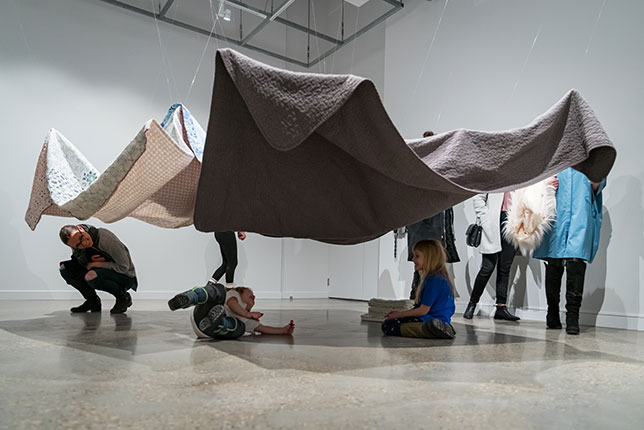
“It’s something we can start modelling as normal and hopefully in the process help set some new standards for accessibility,” says Jervis. “If we truly want more people to participate in the arts, then we, as galleries, need to understand that people need different things to be supported in that participation.”
Learn more about the Mitchell Art Gallery and MacEwan University’s Fine Art program.
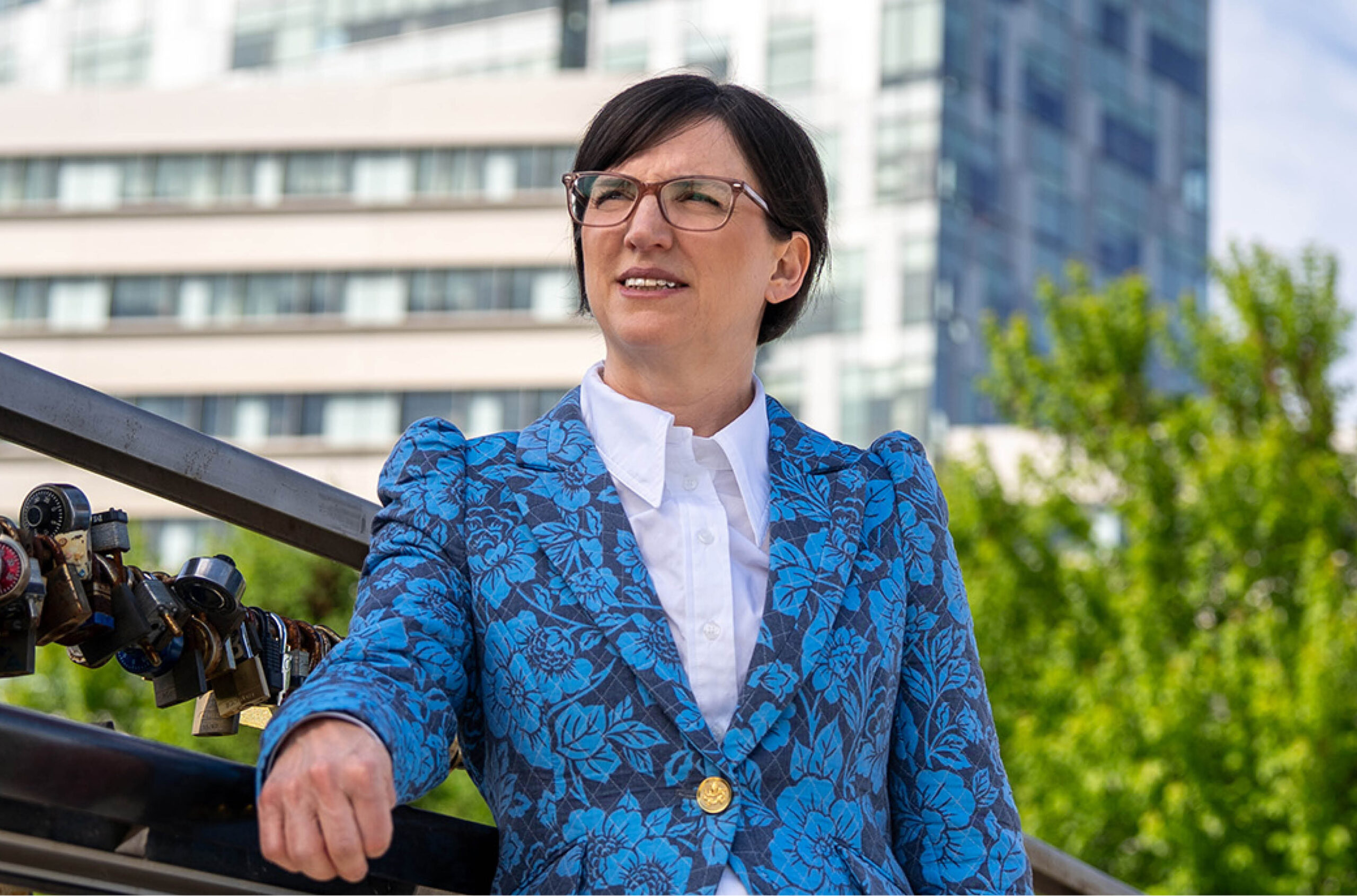

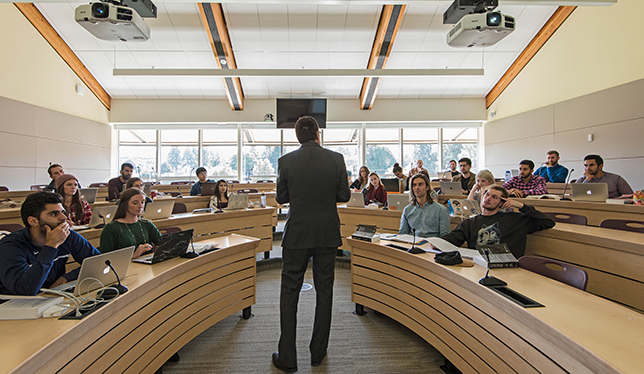

Post a comment
University Affairs moderates all comments according to the following guidelines. If approved, comments generally appear within one business day. We may republish particularly insightful remarks in our print edition or elsewhere.